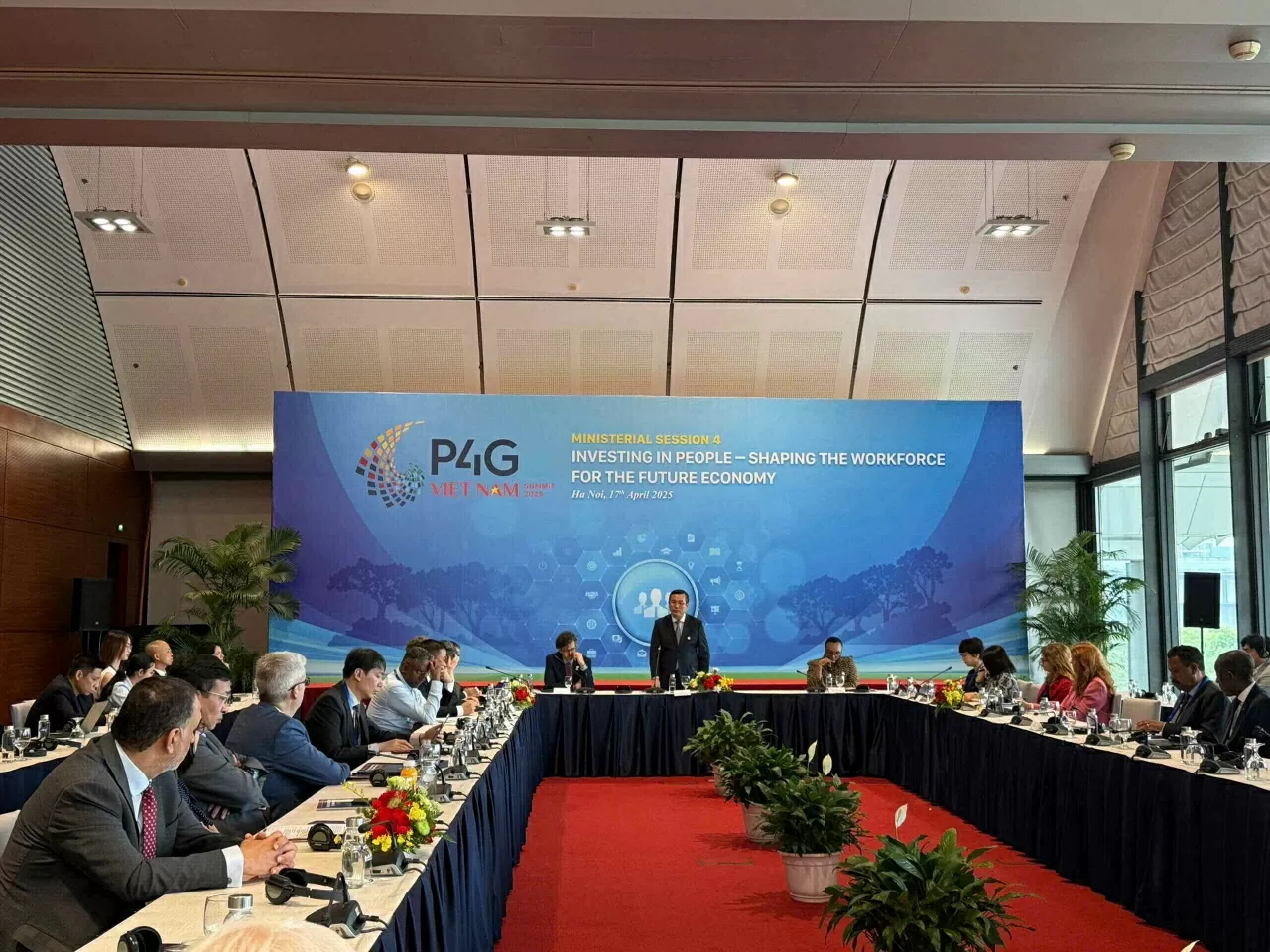 |
| Thematic discussion session on human resources within the framework of the P4G Vietnam 2025 Conference. (Photo: Dieu Linh) |
On April 17, within the framework of the P4G Vietnam Summit 2025 in Hanoi, a discussion session took place with the theme "Investing in people - Building a team for the future economy".
The discussion session was chaired by Deputy Minister of Education and Training Nguyen Van, with the participation of Rwandan Minister of Environment Valentine Uwamariya, Colombian Deputy Minister of Foreign Affairs for Multilateral Affairs Mauricio Jaramillo Jassir, representatives of governments of countries, international organizations and representatives of a number of domestic and foreign enterprises and educational institutions...
At the event, delegates discussed solutions to develop human resources and create a competitive labor market that meets the requirements of the global digital and green transformation.
Preparing human resources for a green future in Vietnam
Speaking at the event, Deputy Minister of Education and Training Nguyen Van Phuc said that in recent times, Vietnam has issued many important policies, creating favorable conditions for the development of industries and professions associated with the development of a circular economy, creating a foundation for the development of green human resources such as issuing regulations on training program standards; strongly promoting the Vietnam National Qualifications Framework, especially for groups of science - technology - engineering sectors serving the 4.0 Industrial Revolution and digital transformation.
Improve the training quality of some key universities and some advanced professions, approaching the level of developed countries in ASEAN and the world; strengthen the quality assessment of training facilities and training programs...
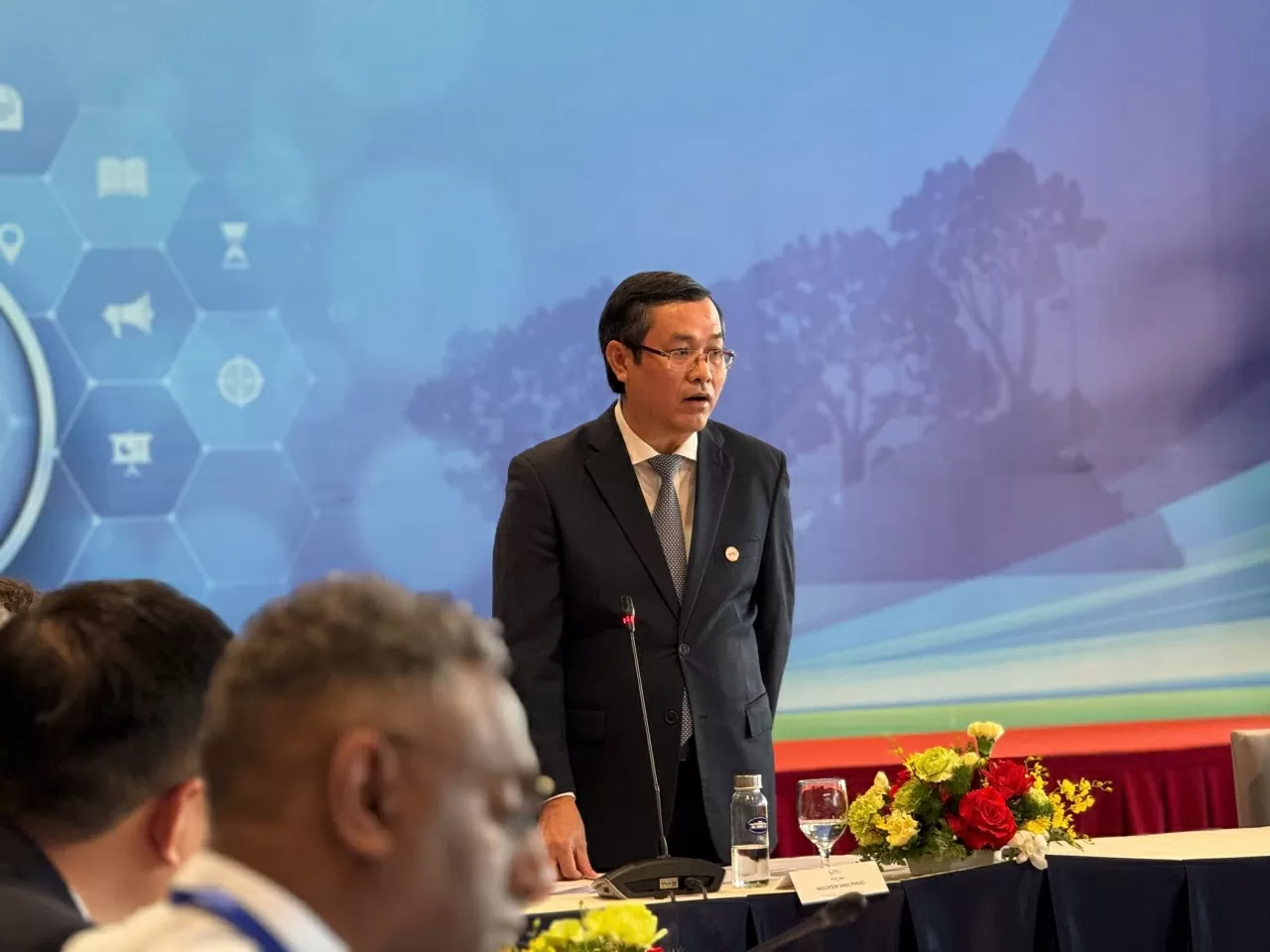 |
| Deputy Minister of Education and Training Nguyen Van Phuc chaired the thematic session. (Photo: Dieu Linh) |
According to Deputy Minister Nguyen Van Phuc, in the future, the vocational education and higher education systems need to quickly update and develop new training programs, focusing on developing skills and academic expertise, serving key areas, contributing to the development of a circular economy such as: biotechnology, renewable energy, organic agriculture, green environmental construction, environmental technology, waste management, material recycling, green logistics and sustainable product equipment.
In particular, Vietnam prioritizes the development of industries related to renewable energy, recycling techniques and smart waste management - areas that will play a pivotal role in the future green economic structure. In addition, Vietnam also prioritizes supporting the development of education-enterprise models that integrate circular practices; strengthen international cooperation and access to green knowledge; actively expand cooperation with countries that have experience in building a circular economy and responding to climate change; prioritize investment and support for green career transition...
Deputy Minister Nguyen Van Phuc also shared successful cooperation models between the government, businesses, domestic and international organizations in building a green workforce; specific policies to prepare human resources for a green future in Vietnam.
Suggesting a number of issues at the discussion session, Deputy Minister Nguyen Van Phuc affirmed that Vietnam is always ready to be a reliable partner in the global architecture of green growth; at the same time, he wishes to cooperate in building international training programs, open learning materials, developing joint projects to train high-quality human resources and participating in the global green education network, sharing practices and lessons learned to promote sustainable development.
Green transformation is inclusive, sustainable, innovative, and human-centered
Delegates focused on discussing solutions for human resource development and a competitive labor market, meeting the needs of digital transformation and green transformation globally. Opinions were shared, identifying the gap between existing occupations and skills and new occupations and skills for the green transformation process, in which one of the important pillars to realize the goal of green transformation, committing to implement Net Zero by 2050 is to develop a circular economy, based on the principle of optimizing resources, reducing waste and promoting sustainable development.
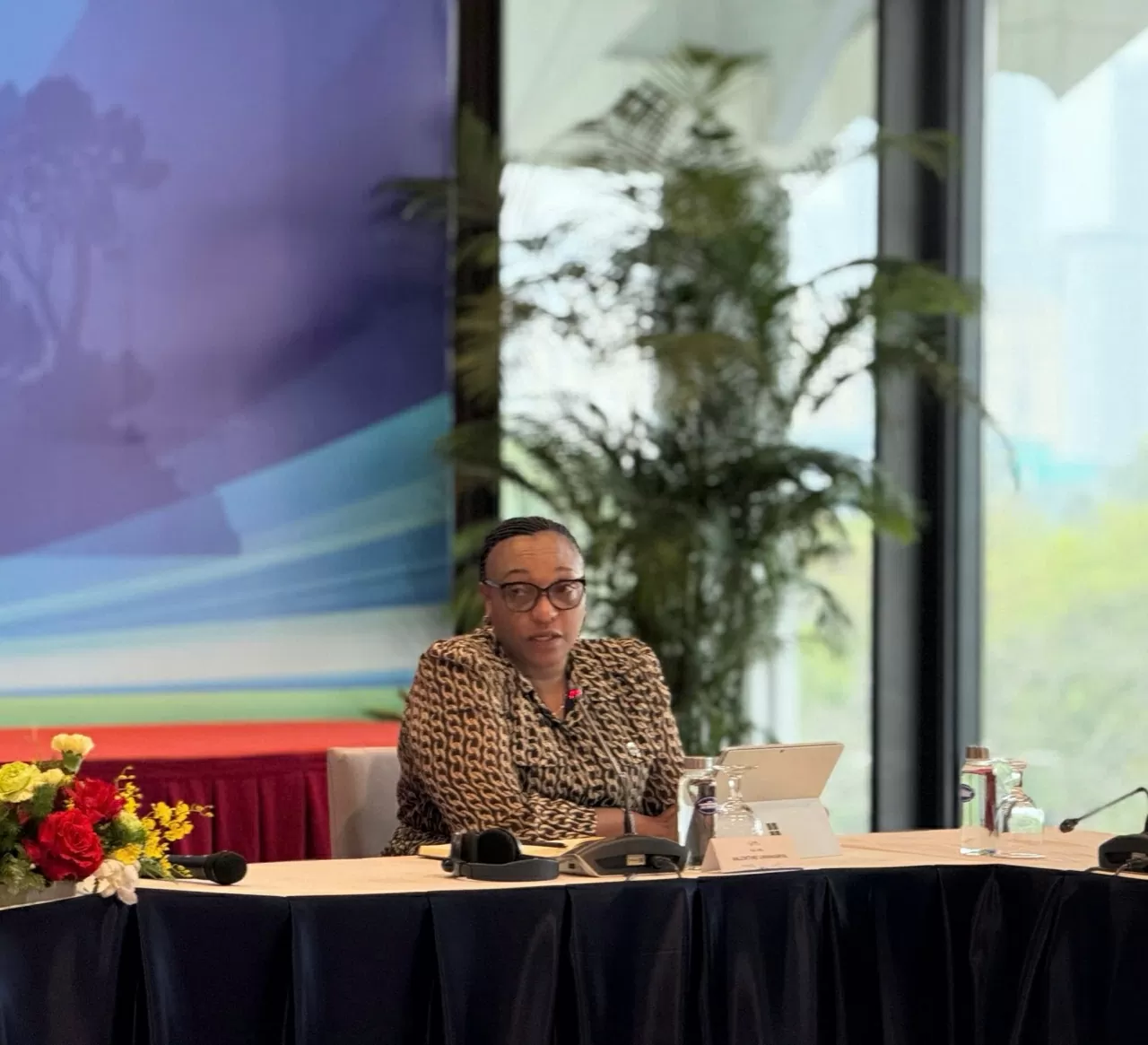 |
| Rwandan Minister of Environment Valentine Uwamariya. (Photo: Dieu Linh) |
Sharing about the opportunities and challenges in the process of realizing the green transformation goal, opinions agreed with the Ministry of Education and Training's assessment that there should be a policy to prioritize retraining and job conversion for workers in areas affected by the transformation process, considering this the key to ensuring appropriate transformation and leaving no one behind.
The opinions of the parties also affirmed that education plays an important role in developing industries and professions associated with the circular economy and training human resources with the capacity to adapt and lead the transformation process.
Rwandan Environment Minister Valentine Uwamariya said that the green transition has huge potential, but we also need to be realistic that it will only be successful if we invest purposefully in the people who will make it happen.
It’s not just about new technology or infrastructure. It’s about equipping workers with the right skills, creating decent jobs, and ensuring that no one is left behind in economic development.
Rwandan Environment Minister Valentine Uwamariya said the country is approaching this goal with concrete actions, implementing practical reforms, putting people at the heart of the transition to a green and resilient economy.
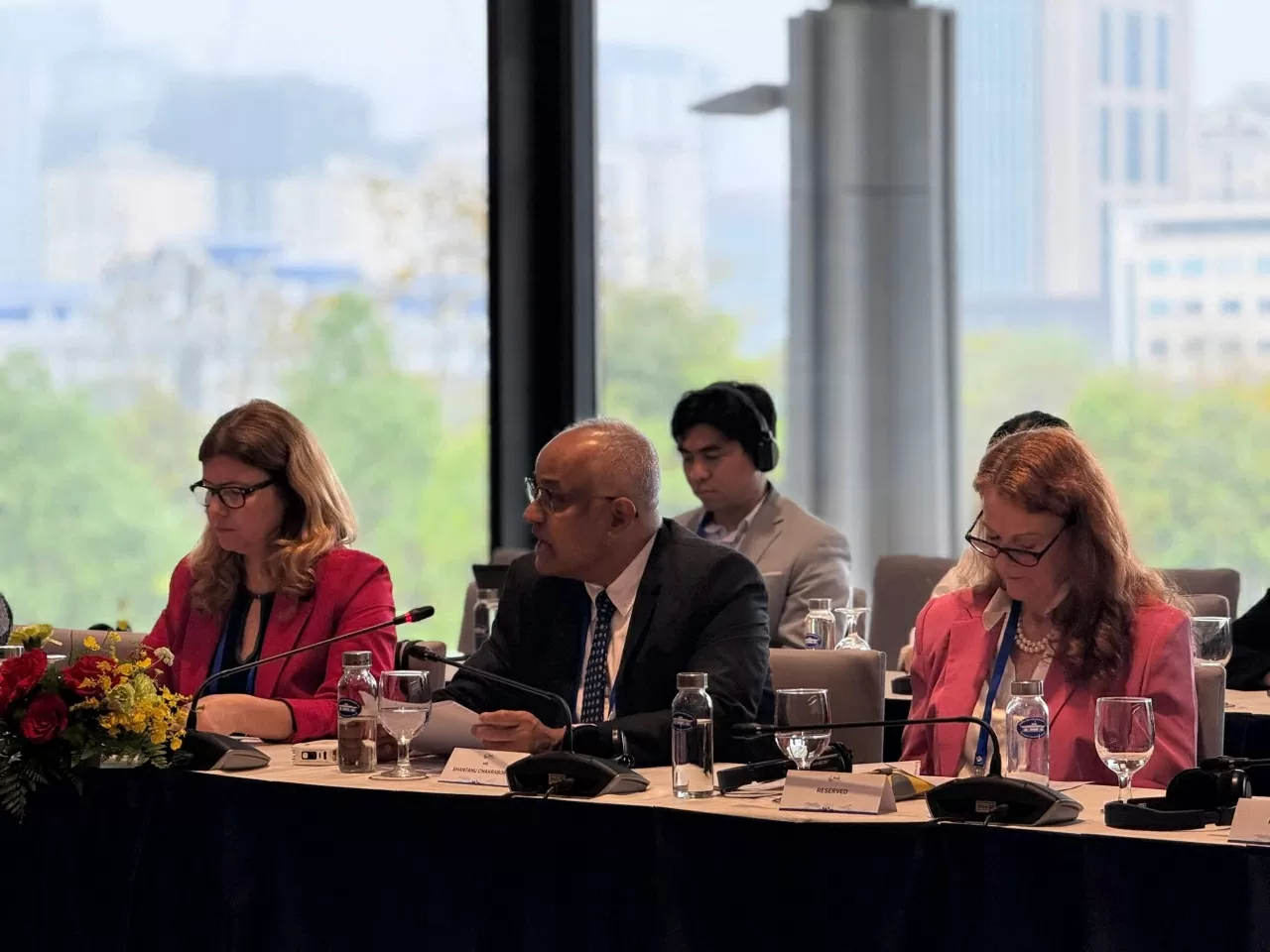 |
| ADB Country Director for Vietnam Shantanu Chakraborty. (Photo: Dieu Linh) |
According to ADB Country Director for Viet Nam Shantanu Chakraborty, the green transition is opening up opportunities to create millions of new jobs across many sectors. Renewable energy, sustainable agriculture, green construction, and environmental conservation are key areas expected to see significant growth. New roles such as solar panel installers, energy efficiency analysts, urban planners, and conservation scientists will become increasingly important.
The transition to a green economy is not just about technology or infrastructure. At its core, it is about people. We must invest in a skilled workforce to build a sustainable, inclusive and prosperous future where no one is left behind, said Noralene M. Uy, Assistant Secretary for Policy, Planning, International Relations and Climate Change of the Department of Environment and Natural Resources (DENR).
This investment requires us to focus on creating the right workforce, by identifying existing skills gaps and aligning education and vocational training systems with changing labor market needs.
Collaboration between educators, industry leaders and policymakers is essential to mitigate the impact of the workforce transition and prepare for the future.
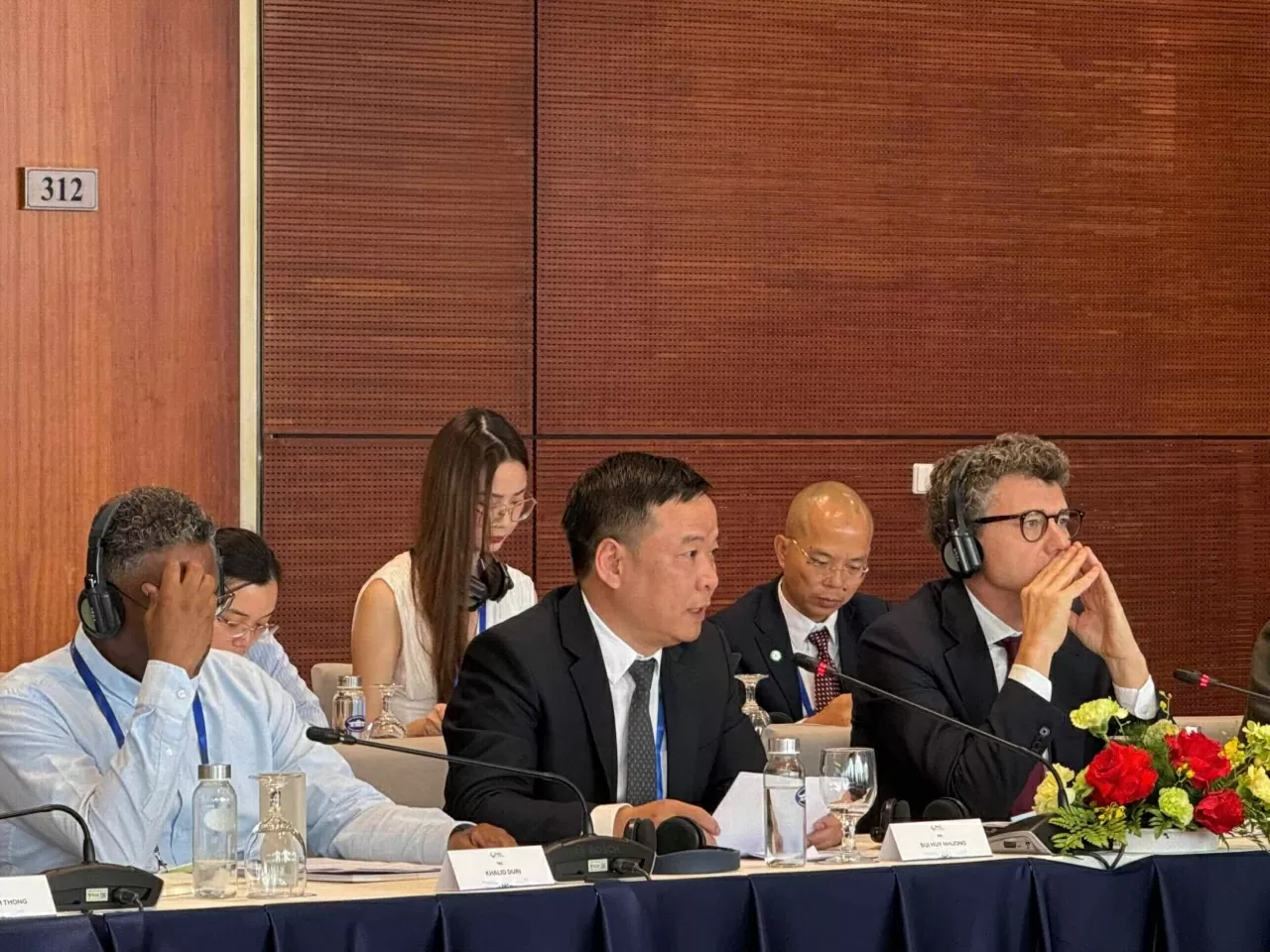 |
| Vice President of the National University of Economics and Business Bui Huy Nhuong. (Photo: Dieu Linh) |
Sharing strategic orientations in developing training programs and developing the model of state-school-enterprise-partnership, Vice President of the National University of International Economics Bui Huy Nhuong stated that investing in green human resources is not only necessary but also a condition for survival.
Without timely investment in people, skills and industries for the future, the green transition will be slowed and the risk of new inequalities will increase.
Agreeing that the green transformation of the economy is not only the responsibility of the Government, but also of all citizens, representatives of international organizations such as UNICEF, UNESCO, UNDP and others said that equipping the workforce with skills in building a green economy is an issue that needs attention, in which the participation of women and girls should be given more importance.
The parties also affirmed their commitment to accompany the green transformation in Vietnam, especially in the field of education and training, in which investment in people is key to creating a workforce for the future economy.
Vietnam has a specific policy to prepare human resources for a green future, clearly demonstrated in the National Strategy on Green Growth for the 2021-2030 period, with a vision to 2050, which identifies the construction of an open, fair and equitable education system, serving lifelong learning; striving to reach the advanced level of the Asian region by 2030 (primary school completion rate reaches 99.7%, secondary school reaches 99%, high school reaches 95%).
Source: https://baoquocte.vn/dau-tu-nguon-n-lao-dong-co-ky-nang-kien-tao-tuong-lai-be-n-vung-toa-n-dien-va-thinh-vuong-311419.html


![[Photo] General Secretary concludes visit to Azerbaijan, departs for visit to Russian Federation](https://vphoto.vietnam.vn/thumb/1200x675/vietnam/resource/IMAGE/2025/5/8/7a135ad280314b66917ad278ce0e26fa)

![[Photo] Prime Minister Pham Minh Chinh meets with the Policy Advisory Council on Private Economic Development](https://vphoto.vietnam.vn/thumb/1200x675/vietnam/resource/IMAGE/2025/5/8/387da60b85cc489ab2aed8442fc3b14a)
![[Photo] General Secretary To Lam begins official visit to Russia and attends the 80th Anniversary of Victory over Fascism](https://vphoto.vietnam.vn/thumb/1200x675/vietnam/resource/IMAGE/2025/5/8/5d2566d7f67d4a1e9b88bc677831ec9d)
![[Photo] President Luong Cuong presents the decision to appoint Deputy Head of the Office of the President](https://vphoto.vietnam.vn/thumb/1200x675/vietnam/resource/IMAGE/2025/5/8/501f8ee192f3476ab9f7579c57b423ad)
![[Photo] National Assembly Chairman Tran Thanh Man chairs the meeting of the Subcommittee on Documents of the First National Assembly Party Congress](https://vphoto.vietnam.vn/thumb/1200x675/vietnam/resource/IMAGE/2025/5/8/72b19a73d94a4affab411fd8c87f4f8d)
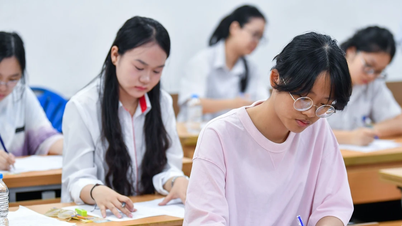
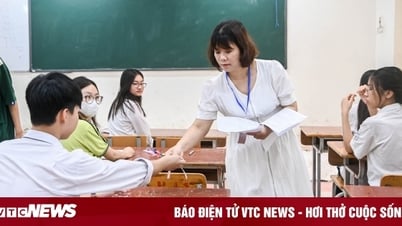

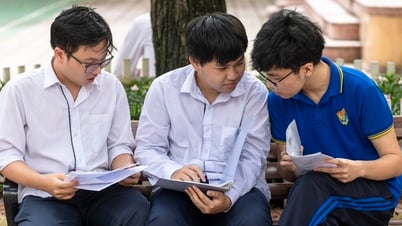
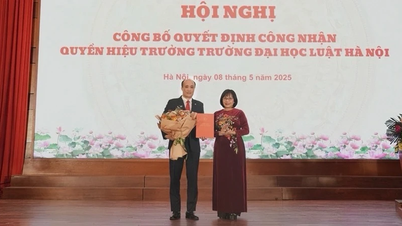
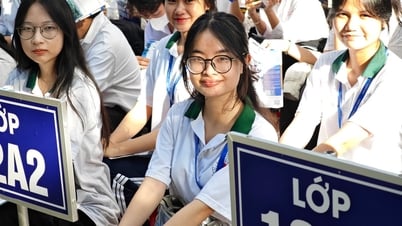




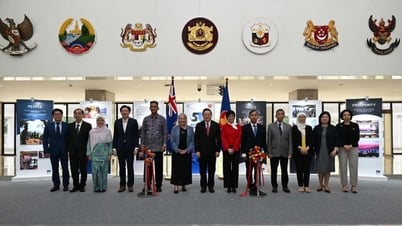
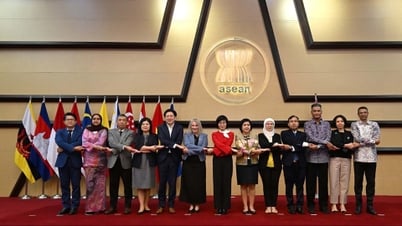
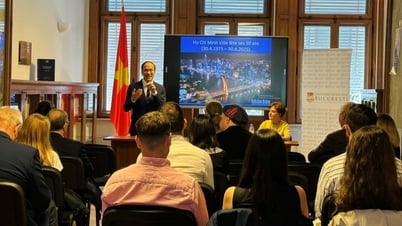
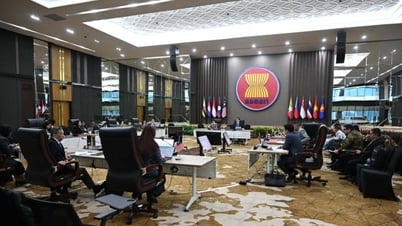

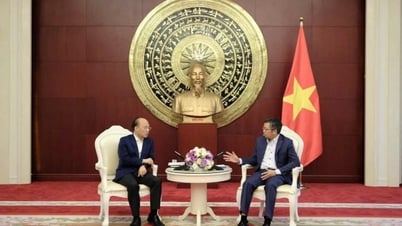

































![[Photo] Prime Minister Pham Minh Chinh talks on the phone with Singaporean Prime Minister Lawrence Wong](https://vphoto.vietnam.vn/thumb/402x226/vietnam/resource/IMAGE/2025/5/8/e2eab082d9bc4fc4a360b28fa0ab94de)

















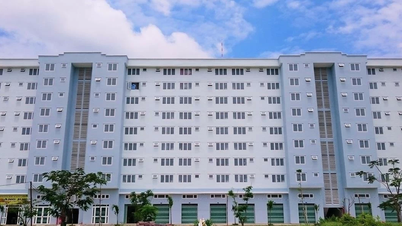












Comment (0)